
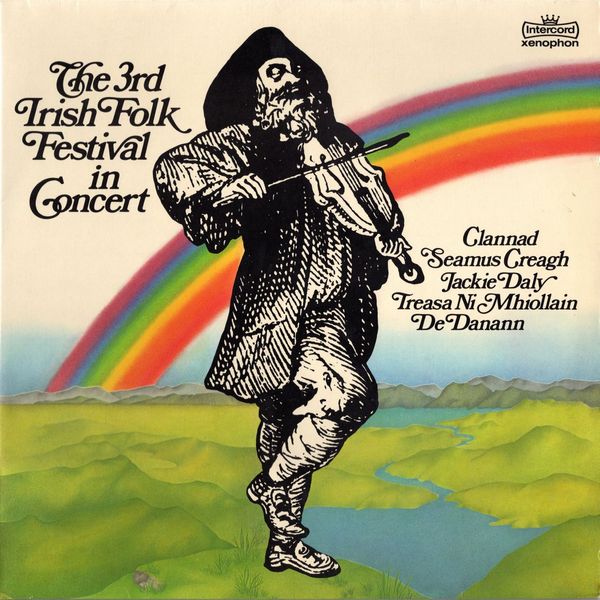 |
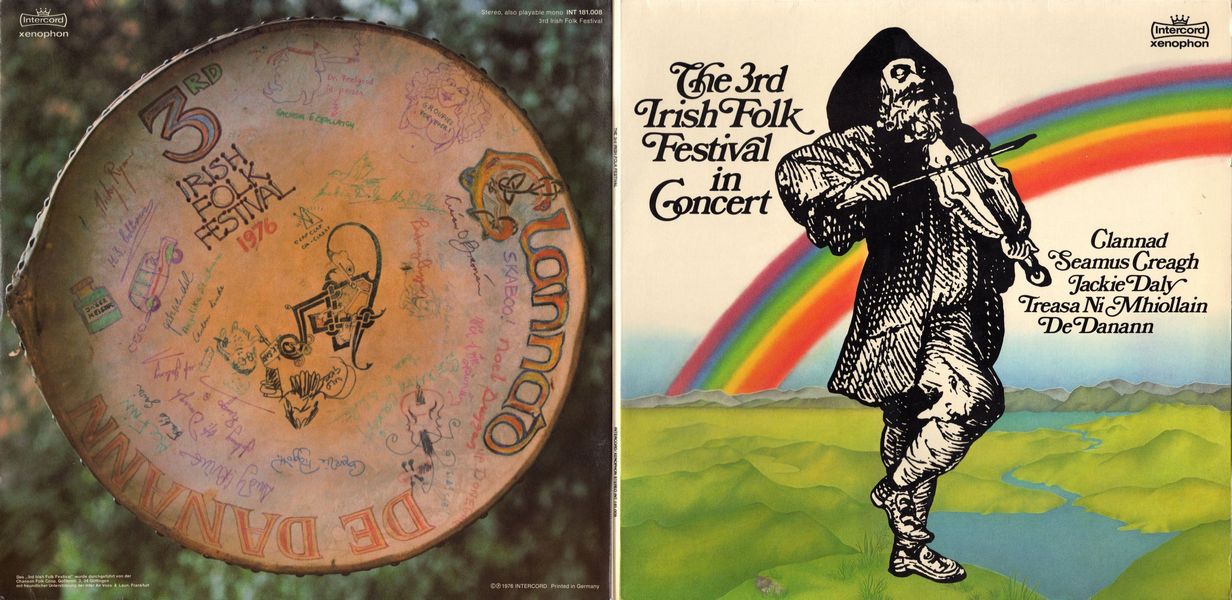
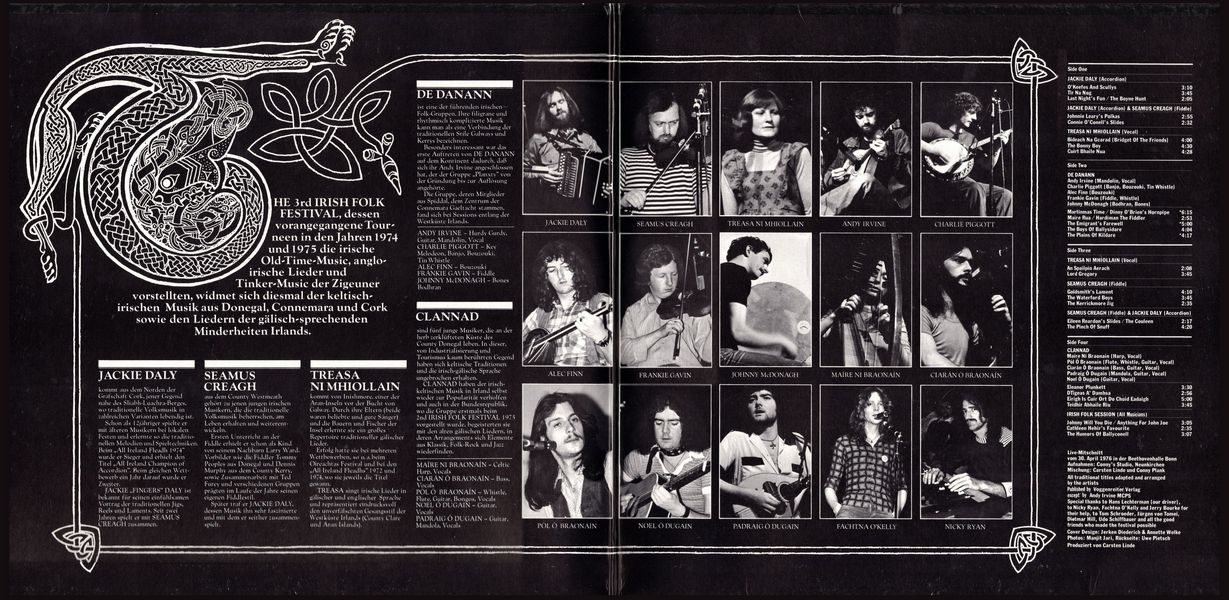
|
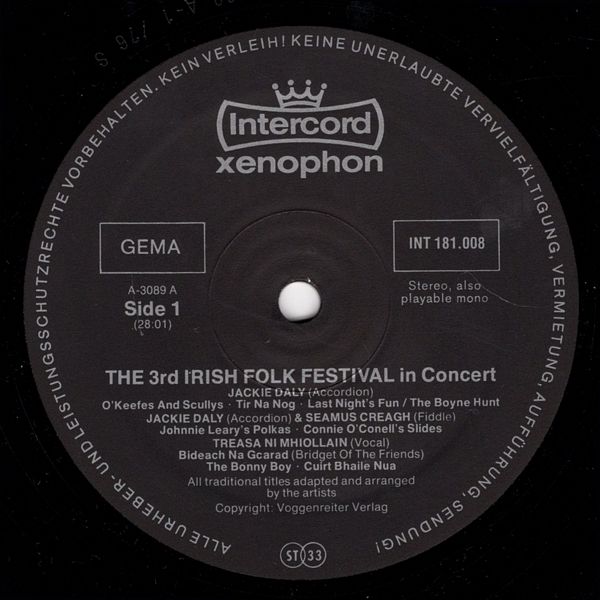
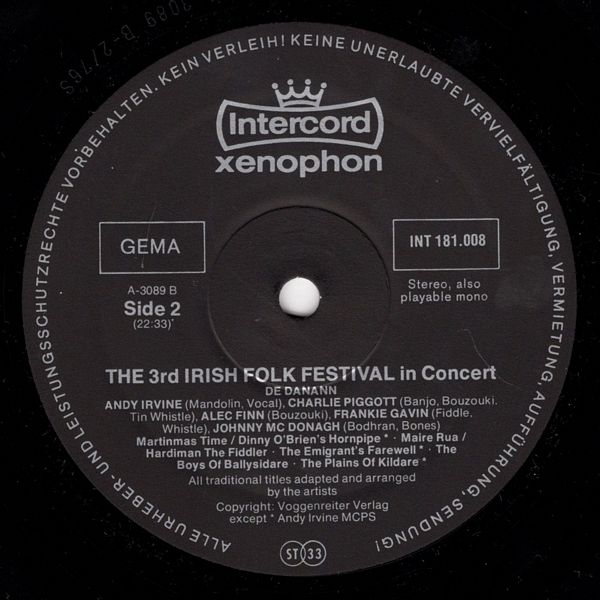
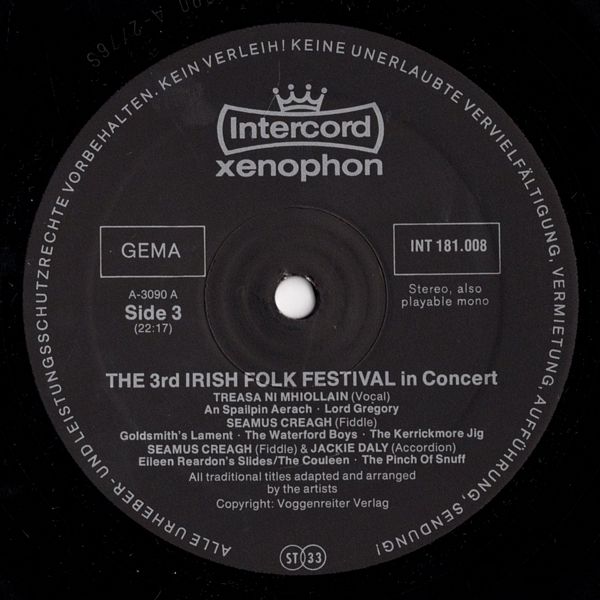
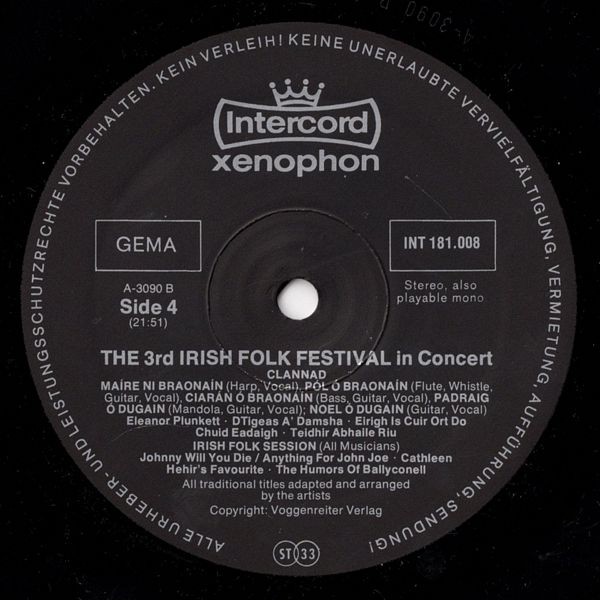
|
Sleeve Notes
The 3rd Irish Folk Festival, whose previous tours in 1974 and 1975 presented Irish old-time music, Anglo-Irish songs and tinker music by the gypsies, this time is dedicated to Celtic-Irish music from Donegal, Connemara and Cork and the songs of Ireland's Gaelic speaking minorities.
Jackie Daly — comes from the north of the Gratschah Cork, that area near the Sliabh Luachra mountain where traditional folk music in numerous variants is alive.
At the age of 12 he played with older musicians at local festivals and learned the traditional melodies and playing techniques. He was a winner at the All Ireland Fleadh 1974 and received the title All Ireland Champion of Accordion. At the same competition a year later, he came second.
Jackie "Fingers" Daly is known for his sensitive presentation of traditional jigs, reels and laments. He has been playing with Seamus Creagh for two years.
Seamus Creagh — from County Westmeath is one of those young Irish musicians who are mastering, keeping alive and developing traditional folk music.
He received his first fiddle lessons as a child from his neighbor Larry Ward. Role models such as the fiddlers Tommy Peoples from Donegal and Dennis Murphy from County Kerry, as well as collaborations with Ted Furey and various groups shaped his own fiddle style over the years.
He later met Jackie Daly, whose music fascinated him and with whom he has played ever since.
Treasa Ni Mhiollain — comes from Inishmore, one of the Aran Islands off Galway Bay. Through her parents (both popular and good singers) and the island's farmers and fishermen, she learned a large repertoire of traditional Gaelic songs.
She found success in several competitions including the Oireachtas Festival and the All Ireland Fleadhs in 1972 and 1974, where she won titles in each.
Treasa sings Irish songs in Gaelic and English and impressively represents the genuine singing style of the west coast of Ireland (County Clare and Aran Islands).
De Danann — is one of Ireland's leading folk groups. Their delicate and rhythmically intricate music can be described as a fusion of traditional Galway and Kerry styles.
The debut appearance of De Danann on the continent was particularly interesting in that it was joined by Andy Irvine, who was a member of the group "Planxty" from its inception to its dissolution.
The group, whose members hail from Spiddal, the center of the Connemara Gaeltacht, found themselves at sessions along the west coast of Ireland.
Clannad — are five young musicians living on the rugged, rugged coast of County Donegal. Celtic traditions and the Irish Gaelic language have survived unbroken in this area, which has hardly been touched by industrialization and tourism.
Clannad made Irish Celtic music popular again in Ireland and also in Germany, where the group was presented for the first time at the 2nd Irish Folk Festival in 1975, they inspired with the old Gaelic songs, in whose arrangements elements from classic, folk rock are found and rediscover jazz.
Original German translated via Google Translate.